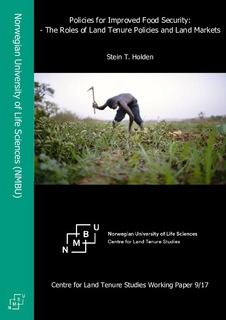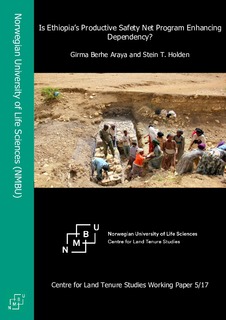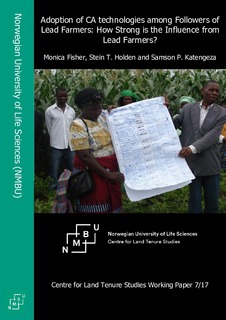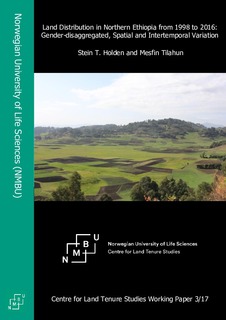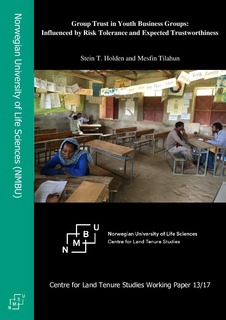Location
NMBU's mission is to contribute to the well-being of the planet. Our interdisciplinary research generates innovations in food, health, environmental protection, climate and sustainable use of natural resources.
About NMBU
NMBU's research is enabling people all over the world to tackle the big, global challenges regarding the environment, sustainable development, how to improve human and animal health, renewable energy sources, food production, and land- and resource management.
Members:
Resources
Displaying 21 - 25 of 98Policies for improved food security : the roles of land tenure policies and land markets
This chapter is written for the European Commission for a book to be published by Springer on The Role of Smallholder Farms in Food and Nutrition Security. The author takes full responsibility for the content.
Is Ethiopia’s productive safety net program enhancing dependency?
Although development intervention programs can have far-reaching impacts beyond their stated objective, there have been few careful studies of unintended outcomes of such programs. This study assesses the impact of Ethiopia’s Productive Safety Net Program (PSNP) on household size and dependency ratio using the difference in differences method based on a panel data of four rounds over 12 years. Results show that member households in the PSNP have built a larger household size and dependency ratio than non-member households.
Adoption of CA technologies among followers of lead farmers : how strong is the influence from lead farmers?
This study investigates how the Farmer-to-Farmer-Extension (F2FE) system with lead farmers and follower farmers influences adoption of Conservation Agriculture (CA) technologies in Malawi. Using data from 180 lead farmers and their 455 followers in central and southern Malawi, we assess the level of influence lead farmers have on their followers’ familiarity with and adoption of CA.
Land distribution in Northern Ethiopia from 1998 to 2016 : gender-disaggregated, spatial and intertemporal variation
This study utilizes land registry data from the First and Second Stage Land Registration Reforms that took place in 1998 and 2016 in sampled districts and communities in Tigray region of Ethiopia. Tigray was the first region to implement low-cost land registration and certification in Ethiopia and providing household level land certificates in the names of household heads. Second Stage Land Registration and Certification (SSLRC) is scaled up since 2015 and provides households with parcel-based certificates with maps. The SSLR&C lists all holders of parcels by name and gender.
Group trust in youth business groups : influenced by risk tolerance and expected trustworthiness
We analyzed lab-in-the-field trust and risk experiment with 1125 youth in 119 youth groups established as primary cooperatives to develop a joint business. The experiments were implemented using classrooms in local schools as field labs. The standard trust game was used with all youth participants playing the roles as trustors as well as trustees. As trustors, they knew that the trustee would be an anonymous member of their own youth group.


